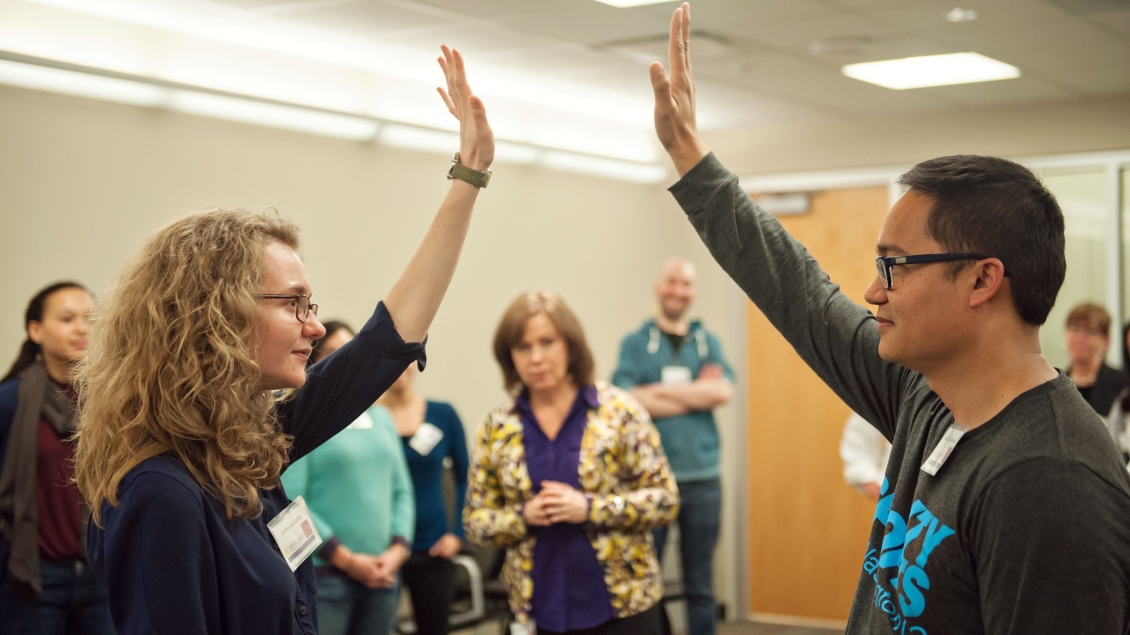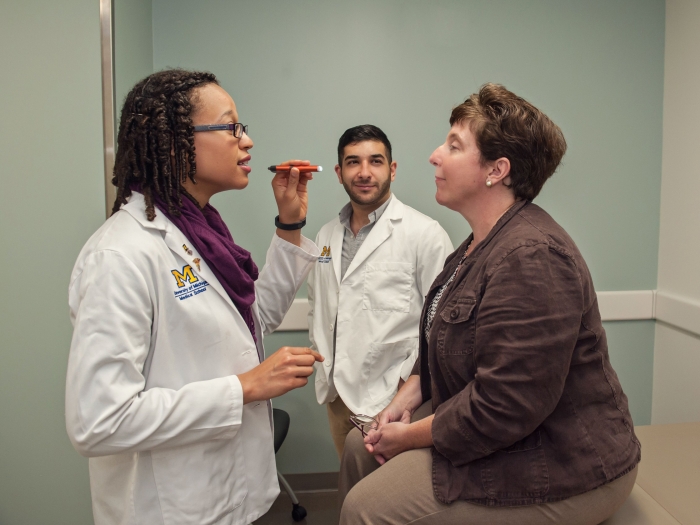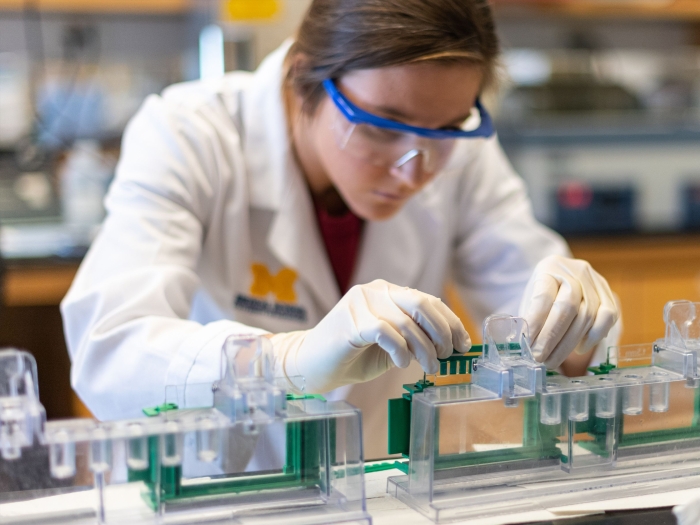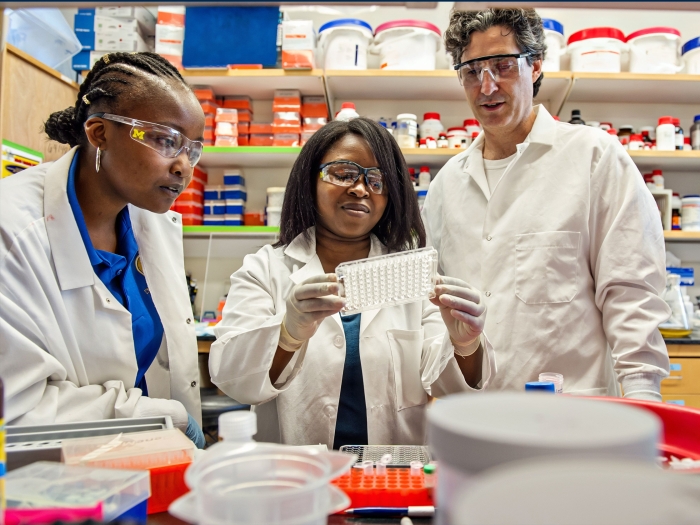
Taking Your Time
Longitudinal learning leads to better development of essential skills.
As students gain clinical and scientific knowledge throughout the four years of medical school, they become more adept at applying what they’ve learned to how they practice medicine.
The same applies to building your professional skills, like leadership, teamwork and understanding your role at a systems level and how your personal beliefs influence the care you give.
Working With Your Coach
The role of your faculty coach is to provide guidance and support throughout your entire time in medical school. You will meet one-on-one regularly with your coach to help identify and achieve your goals. Together you will develop a learning plan that evolves as your training progresses.
Competencies that require in-depth development and introspection are integrated with Michigan’s core curriculum across all four years, including:



In addition to a number of longitudinal courses that span all phases of the curriculum, key concepts and principles are reinforced repeatedly throughout your education at Michigan."